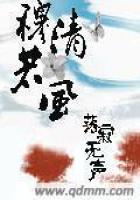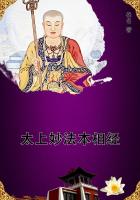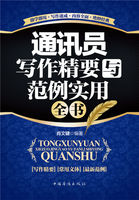With commerce the prerogative of a particular class, with the extension of trade through the merchants beyond the immediate surroundings of the town, there immediately appears a reciprocal action between production and commerce. The towns enter into relations with one another, new tools are brought from one town into the other, and the separation between production and commerce soon calls forth a new division of production between the individual towns, each of which is soon exploiting a predominant branch of industry. The local restrictions of earlier times begin gradually to be broken down.
It depends purely on the extension of commerce whether the productive forces achieved in a locality, especially inventions, are lost for later development or not. As long as there exists no commerce transcending the immediate neighbourhood, every invention must be made separately in each locality, and mere chances such as irruptions of barbaric peoples, even ordinary wars, are sufficient to cause a country with advanced productive forces and needs to have to start right over again from the beginning.
In primitive history every invention had to be made daily anew and in each locality independently. How little highly developed productive forces are safe from complete destruction, given even a relatively very extensive commerce, is proved by the Phoenicians, whose inventions were for the most part lost for a long time to come through the ousting of this nation from commerce, its conquest by Alexander and its consequent decline. Likewise, for instance, glass-painting in the Middle Ages. Only when commerce has become world commerce and has as its basis large-scale industry, when all nations are drawn into the competitive struggle, is the permanence of the acquired productive forces assured.
The Rise of Manufacturing The immediate consequence of the division of labour between the various towns was the rise of manufactures, branches of production which had outgrown the guild-system. Manufactures first flourished, in Italy and later in Flanders, under the historical premise of commerce with foreign nations.
In other countries, England and France for example, manufactures were at first confined to the home market. Besides the premises already mentioned manufactures depend on an already advanced concentration of population, particularly in the countryside, and of capital, which began to accumulate in the hands of individuals, partly in the guilds in spite of the guild regulations, partly among the merchants.
That labour which from the first presupposed a machine, even of the crudest sort, soon showed itself the most capable of development. Weaving, earlier carried on in the country by the peasants as a secondary occupation to procure their clothing, was the first labour to receive an impetus and a further development through the extension of commerce. Weaving was the first and remained the principal manufacture. The rising demand for clothing materials, consequent on the growth of population, the growing accumulation and mobilisation of natural capital through accelerated circulation, the demand for luxuries called forth by the latter and favoured generally by the gradual extension of commerce, gave weaving a quantitative and qualitative stimulus, which wrenched it out of the form of production hitherto existing.
Alongside the peasants weaving for their own use, who continued, and still continue, with this sort of work, there emerged a new class of weavers in the towns, whose fabrics were destined for the whole home market and usually for foreign markets too.
Weaving, an occupation demanding in most cases little skill and soon splitting up into countless branches, by its whole nature resisted the trammels of the guild. Weaving was, therefore, carried on mostly in villages and market-centres without guild organisation, which gradually became towns, and indeed the most flourishing towns in each land.
With guild-free manufacture, property relations also quickly changed.
The first advance beyond naturally derived estate capital was provided by the rise of merchants whose capital was from the beginning movable, capital in the modern sense as far as one can speak of it, given the circumstances of those times. The second advance came with manufacture, which again made mobile a mass of natural capital, and altogether increased the mass of movable capital as against that of natural capital.
At the same time, manufacture became a refuge of the peasants from the guilds which excluded them or paid them badly, just as earlier the guild-towns had [served] as a refuge for the peasants from [the oppressive landed nobility].
Simultaneously with the beginning of manufactures there was a period of vagabondage caused by the abolition of the feudal bodies of retainers, the disbanding of the swollen armies which had flocked to serve the kings against their vassals, the improvement of agriculture, and the transformation of great strips of tillage into pasture land. From this alone it is clear how this vagabondage is strictly connected with the disintegration of the feudal system. As early as the thirteenth century we find isolated epochs of this kind, but only at the end of the fifteenth and beginning of the sixteenth does this vagabondage make a general and permanent appearance.
These vagabonds, who were so numerous that, for instance, Henry VIII of England had 72,000 of them hanged, were only prevailed upon to work with the greatest difficulty and through the most extreme necessity, and then only after long resistance. The rapid rise of manufactures, particularly in England, absorbed them gradually.















